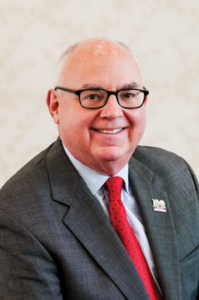Sound Recording Labor Agreement (SRLA) negotiations began in Los Angeles on January 13-15. I am pleased to report that we had a very strong and focused beginning. These negotiations are being conducted with a level of preparation that reflects the high stakes of the modern recording industry.
It’s no secret that our number one priority is to prevent the unauthorized use of our tracks for machine learning and artificial intelligence (AI). This is not a distant threat; it is a current reality. Alongside securing sustainable, accessible health care for those in the sound recording field, AI protection is the primary engine driving our proposals. We are documenting exactly how our creative output is being harvested. We are not just negotiating for the next few years; we are building the legal and economic guardrails that will protect the human element of music for decades to come.
SLRA negotiations will resume again in March. Our strategy will remain data-driven and fueled by a comprehensive effort to gather every shred of evidence on how our members’ work is being used in the digital age. We aren’t just arguing from a place of sentiment, but we are arguing from a place of fact. We are analyzing the flow of content and the economic realities of the recording studio to ensure our demands are backed by undeniable proof of the value musicians bring to the table.
I am incredibly proud of the “all hands on deck” team we’ve assembled for this fight. This group is a powerhouse of expertise, including our dedicated in-house legal team and general counsel, our directors of the Electronic Media Services Division and Government Affairs, and specialist advisors with deep technical knowledge. Most importantly, this team is balanced by the presence of local officers and rank-and-file representation. Bringing the voices of the musicians—the people who work in studios and on stage—to the table ensures that the reality of the work remains the heart of our demands.
The Power of the Contract: Our Shield in the AI Age
There is a direct and unbreakable link between our success at the bargaining table and the discipline we show as a collective in the field. I want to speak directly to our independent artists and those working with indie labels. Often, I hear the call to “organize the indies.” However, the landscape of independent music is unique. Because many indie labels operate as distributors or facilitators rather than traditional employers, the power—and the responsibility—often rests with the individual artist to protect their own future.
The AFM has specialized agreements designed to accommodate this type of work. These aren’t “old world” contracts; they are modern tools meant to provide a safety net in an increasingly precarious industry. I want to be clear: filing an AFM contract is not a bureaucratic hurdle. It is your strongest shield.
However, the truth is, we cannot protect what we cannot track. Filing an AFM contract is the only way to ensure:
•Intellectual Property Protection: Without a formal contract on file, it becomes nearly impossible for the Federation to track your material across digital platforms. We need that paper trail to prove ownership and to prevent your work from being fed into machine learning models without your consent or compensation.
•Health Care and Pension Eligibility: These benefits are the bedrock of a long-term career. They are not granted by the goodwill of the industry; they are earned through the filing of contracts that document your work and trigger the contributions you are owed.
I urge every member to view the simple act of filing your contracts as an act of solidarity. When you file, you are strengthening the data pool we use to fight the major labels. You are proving the volume and value of our collective work. To win big in the SRLA negotiations, we must show the industry that we are an organized, disciplined body that recognizes the value of its own work and knows how to protect it.
When we return to the bargaining table in March, our unity—and our shared commitment to union contracts—remain our greatest assets. Together, we are ensuring that music remains human.
Welcoming New Leadership
I want to acknowledge the arrival of new leadership and energy following general elections across the Federation. It is an inspiring time for our union, as many locals have seen a transition in leadership that reflects the changing needs of our membership. At Local 802 (New York City), we welcome President Dan Point and Recording Vice President Sarah Haines, who join continuing Financial Vice President Karen Fisher. Across the country at Local 47 (Los Angeles, CA), we welcome President Mark Sazer and Vice President John Acosta, along with returning Secretary-Treasurer Gail Kruvand.
The voices of these two major markets are significant and essential components of our Federation. Their leadership, combined with the energy of new and returning officers in locals of all sizes across the country, creates a powerful, unified front. While we highlight the major hubs, we do so with the understanding that every local—from Nashville to Toronto to Chicago—is a vital part of the Federation’s backbone.
I also want to extend my deep gratitude to outgoing Local 47 President Stephanie O’Keefe for her years of dedicated service to the local and her vital work as a trustee to the AFM and Employers Pension Fund (AFM-EPF). Her commitment to the pension fund and the well-being of our members has left a lasting mark.
Looking Ahead: The 103rd AFM Convention
Finally, as we look toward the future of our Federation, the 103rd AFM Convention is on the horizon—June 20-23, in the beautiful capital city of Ottawa, Ontario. This marks our first convention in Canada in over 50 years, and it will be a pivotal moment to deliberate on the challenges of the AI era and to solidify our shared vision.
I encourage all officers and delegates to keep an eye out for formal notices and detailed information. For those planning to attend, now is the time to ensure your passports are up to date for travel to Canada. You can find the latest convention news at www.afm.org/103rd-afm-convention.
Read More






